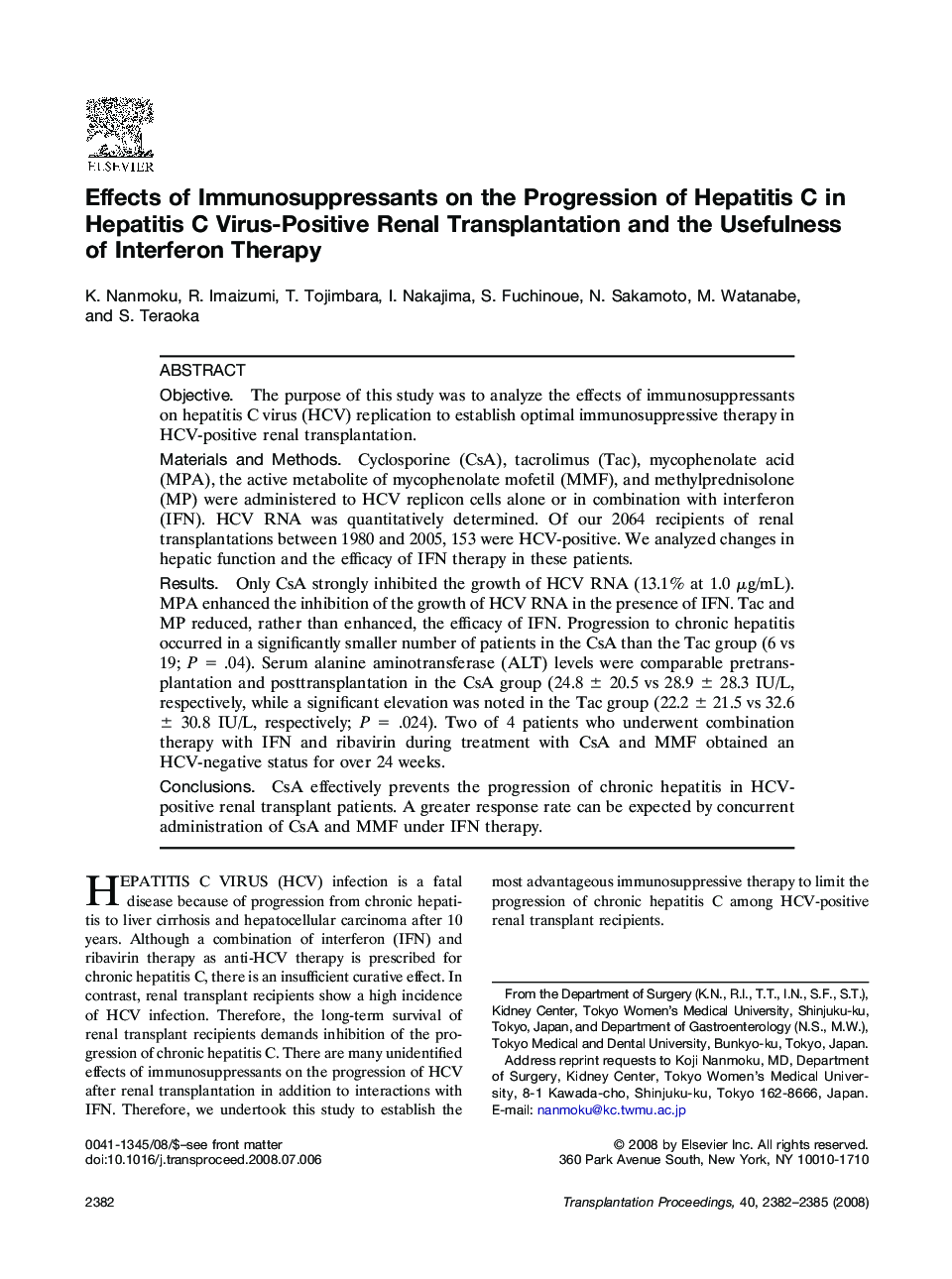| Article ID | Journal | Published Year | Pages | File Type |
|---|---|---|---|---|
| 4262521 | Transplantation Proceedings | 2008 | 4 Pages |
ObjectiveThe purpose of this study was to analyze the effects of immunosuppressants on hepatitis C virus (HCV) replication to establish optimal immunosuppressive therapy in HCV-positive renal transplantation.Materials and MethodsCyclosporine (CsA), tacrolimus (Tac), mycophenolate acid (MPA), the active metabolite of mycophenolate mofetil (MMF), and methylprednisolone (MP) were administered to HCV replicon cells alone or in combination with interferon (IFN). HCV RNA was quantitatively determined. Of our 2064 recipients of renal transplantations between 1980 and 2005, 153 were HCV-positive. We analyzed changes in hepatic function and the efficacy of IFN therapy in these patients.ResultsOnly CsA strongly inhibited the growth of HCV RNA (13.1% at 1.0 μg/mL). MPA enhanced the inhibition of the growth of HCV RNA in the presence of IFN. Tac and MP reduced, rather than enhanced, the efficacy of IFN. Progression to chronic hepatitis occurred in a significantly smaller number of patients in the CsA than the Tac group (6 vs 19; P = .04). Serum alanine aminotransferase (ALT) levels were comparable pretransplantation and posttransplantation in the CsA group (24.8 ± 20.5 vs 28.9 ± 28.3 IU/L, respectively, while a significant elevation was noted in the Tac group (22.2 ± 21.5 vs 32.6 ± 30.8 IU/L, respectively; P = .024). Two of 4 patients who underwent combination therapy with IFN and ribavirin during treatment with CsA and MMF obtained an HCV-negative status for over 24 weeks.ConclusionsCsA effectively prevents the progression of chronic hepatitis in HCV-positive renal transplant patients. A greater response rate can be expected by concurrent administration of CsA and MMF under IFN therapy.
